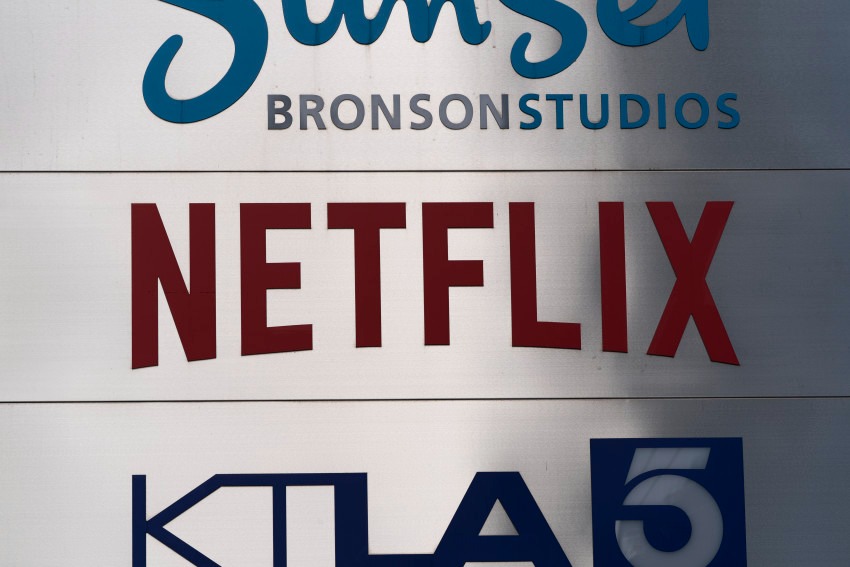Netflix's password-sharing crackdown reels in subscribers as it raises prices for its premium plan

Netflix on Wednesday disclosed summertime subscriber gains that surpassed industry analysts’ projections, signaling the video streaming service’s crackdown on password sharing is converting former freeloaders into paying customers.
In an effort to bring in even more revenue, Netflix also announced it's raising the price for its most expensive streaming service by $2 to $23 per month in the U.S. — a 10% increase — and its lowest-priced, ad-free streaming plan to $12 — another $2 bump. The $15.50 per month price for Netflix's most popular streaming option in the U.S. will remain unchanged, as will a $7 monthly plan that includes intermittent commercials.
The company added nearly 8.8 million worldwide subscribers during the July-September period, more than tripling the number gained during the same time last year when Netflix was scrambling to recover from a downturn in customers during the first half last year. The increase left Netflix with about 247 million worldwide subscribers, well above the 243.8 million projected by analysts surveyed by FactSet Research.
Netflix’s financial performance also topped the analyst forecasts that shape investor expectations. The Los Gatos, California, company earned $1.68 billion, or $3.73 per share, a 20% increase from the same time last year while revenue climbed 8% to $8.54 billion.
The company’s stock price soared more than 10% in extended trading after the latest quarterly numbers came out. Netflix shares have increased by about 30% so far thisRead More : BBC, Netflix announce drama based on Lockerbie bombing year amid mounting evidence its video streaming service is faring better than most in a crowded fielded of competitors that is testing the financial limits of many households.
Netflix has picked up more than 16 million subscribers through the first nine months of the year, already eclipsing the 8.9 million subscribers that it added all of last year. But it’s still a fraction of the more than 36 million additional subscribers that Netflix attracted in 2020 when the pandemic turned into a gold mine for the service at a time when people were looking for ways to stay entertained while tethered to home.
Subscriber growth “isn’t going to be what it was three or four years ago. That has to do with (market) penetration and who can afford to pay for it,” said Uday Cheruvu, an analyst for Harding Loevner, a money manager that owns Netflix shares.
In an effort to bring in even more revenue, Netflix also announced it's raising the price for its most expensive streaming service by $2 to $23 per month in the U.S. — a 10% increase — and its lowest-priced, ad-free streaming plan to $12 — another $2 bump. The $15.50 per month price for Netflix's most popular streaming option in the U.S. will remain unchanged, as will a $7 monthly plan that includes intermittent commercials.
The company added nearly 8.8 million worldwide subscribers during the July-September period, more than tripling the number gained during the same time last year when Netflix was scrambling to recover from a downturn in customers during the first half last year. The increase left Netflix with about 247 million worldwide subscribers, well above the 243.8 million projected by analysts surveyed by FactSet Research.
Netflix’s financial performance also topped the analyst forecasts that shape investor expectations. The Los Gatos, California, company earned $1.68 billion, or $3.73 per share, a 20% increase from the same time last year while revenue climbed 8% to $8.54 billion.
The company’s stock price soared more than 10% in extended trading after the latest quarterly numbers came out. Netflix shares have increased by about 30% so far this
Netflix has picked up more than 16 million subscribers through the first nine months of the year, already eclipsing the 8.9 million subscribers that it added all of last year. But it’s still a fraction of the more than 36 million additional subscribers that Netflix attracted in 2020 when the pandemic turned into a gold mine for the service at a time when people were looking for ways to stay entertained while tethered to home.
Subscriber growth “isn’t going to be what it was three or four years ago. That has to do with (market) penetration and who can afford to pay for it,” said Uday Cheruvu, an analyst for Harding Loevner, a money manager that owns Netflix shares.
Source: japantoday.com
